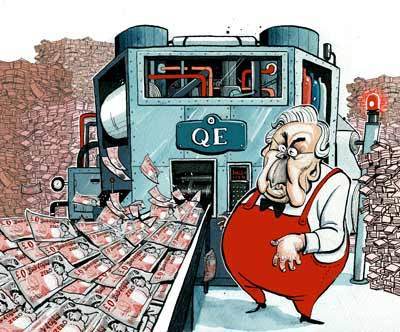The best of all possible worlds for the pension industry is a buoyant economy. Workers have enough money to save, share prices rise and dividend growth is robust. Interest rates are positive in real terms so annuities are good value. The economy ground to a halt in 2008. The overwhelming priority for everyone is to get growth going again. Without growth the services that pensioners depend on — such as the NHS — will struggle.
Traditionally, governments cut interest rates and raise spending to get the economy moving. The Bank of England has cut interest rates as much as possible and the government deficit remains very high. We have exhausted conventional policies, and yet the economy is not growing. In these circumstances the Bank of England’s ‘Quantitative Easing’ policies are sensible. There are few alternatives.
As Fraser has pointed out, QE does lead to big falls in annuity rates — which appears to be bad news for those who have retired in the last three years. That said, QE has also propped up share prices. The FTSE All Share index has risen 50 per cent since QE began 3 years ago. Gilt prices have also risen strongly. Let us imagine for simplicity that QE led share prices to double, and annuity rates to halve. In those circumstances newly retired pensioners are completely unaffected by QE — the value of their portfolio would have doubled, but each £1 of their pension pot would buy them only half as much pension as expected. The net effect in this example is a wash.
In fact the two effects do not fully cancel each other out. Those about to retire have taken a hit, although one much smaller than anti-QE writers claim. Pensioners are not alone in being made worse off by the recession — almost everyone has been affected. Some workers, for example, have lost their jobs. Others have seen their hours and wages cut. Yet more have seen their wages frozen in money terms, meaning a cut in their standard of living.
Saving for a pension means you own part of the British — and other — economies. That is what a funded pension is. A recession reduces the value of those economies. It follows, inevitably, that a recession cuts the value of any pension pot. QE means that the way that the pension pot has fallen in value is via a fall in annuity values, rather than a fall in the value of investment assets. But ultimately it is the recession that has hit pensioners, not QE, and ultimately getting out of recession is the news all of us want to hear.
Tim Leunig is Chief Economist at CentreForum think tank.






Comments